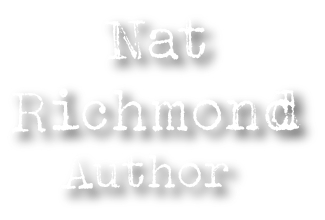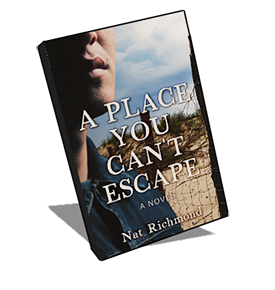


Looking around my first period class I knew my slate had been wiped clean. Nobody in there had been with Mr. Scabbard the year before, no witnesses to Joan of Arc Day. Like Chaz Honeycutt, they had simply disappeared over the summer. That was how it worked in the military, and why I loved it. Families were uprooted often, and on short notice, taking what had meant trouble for me someplace else. Not even the Holy Spirit could buck the United States Air Force. Patrick had disappeared, too, announcing that he was hopping a bus to visit friends in Florida over the July 4 th weekend, and then simply not returning.
“This class is called Problems of American Democracy,” Miss Merrill announced. “I’ve noticed that some of you are erroneously calling it ‘civics.’ I assure you, what we will be doing in here is far more important than whatever you might think ‘civics’ is.” She started walking around the room, her head wobbling precariously on her slender neck. I wondered if it was the weight of that beehive hairdo.
“It is why the state legislature has required this course of all ninth graders,” she continued. “The future of our great country could depend on what you learn here. I hope you understand that, and that you will govern yourselves accordion.”
Clearly, she didn’t think American democracy had any problems that weren’t somebody else’s fault.
“The free world has been under threat since the Russians erected the Iron Curtain in 1946 to separate East and West Berlin, and tyranny from freedom,” she explained.
I raised my hand. I wasn’t eager to disagree with her, but as much as I wanted to govern myself accordion, I couldn’t help pointing out some fact errors on her part. I didn’t have any idea how to behave around girls, but I’d never been shy with teachers.
She gave me a chilly look.
“Yes?”
“Winston Churchill used ‘Iron Curtain’ to describe the Soviet Union’s control of Eastern Europe,” I said. I could see her eyes shrinking to angry slits, but I plowed on. “What separates East and West Berlin is the Berlin Wall. It’s made of cinder block, with barbed wire on top, and it was built by the East Germans in 1961.”
By the time I finished her head was bobbing so violently that I half expected it to pop off and roll across the linoleum floor. She pushed a strand of brown hair off her face and back into the beehive and sneered at me.
“Oh? And I suppose you’ve seen it?”
She was obviously new to teaching Army and Air Force kids.
“The Wall?” I said. “Oh, yes, ma’am. I lived in Berlin for several months.”
“Well, it doesn’t really matter what it’s made of,” she said. “And whether you call it the Iron Curtain or the Wall, you must have observed it from quite a distance.” She looked around at the rest of the class, smiling grimly. “The Russians shoot anybody who tries to get too close.”
“Oh, no, ma’am,” I said. “It’s guarded by East Germans, not Russians, and you can get close to it if you’re in West Berlin. I stood on a platform right next to it, and you could see everything on the other side. It’s East Berliners who can’t get near it.”
“No one can,” she persisted. “No one is allowed to approach the Iron Curtain from either side, and no one ever, ever gets through it alive, boys and girls.”
“My mother and I did,” I said. “We went through Checkpoint Charlie on a tour bus. Germans can’t, but Americans can. You have to have an East German guide, though, because – ”
“Yeah, my family did that, too,” another kid said. “It was cool, but pretty sad.”
Miss Merrill’s head was still going full tilt.
“I think you’ve monopolized enough class time,” she hissed. “This course is Problems of American Democracy, not show and tell.” She turned to the other kid. “And in this class we don’t speak without being recognized.”
“Hey, when were you there?” he asked me, ignoring her. I turned to face him. He was Hispanic, and older-looking, but he wore black glasses just like mine.
“Late in ’63,” I said, “when Kennedy was assassinated. We were scared.”
“That will do!” Miss Merrill shouted. She wasn’t fat, but her shirtwaist dress was at least one size too tight, and her heavy breathing was pulling open a gap that revealed a white brassiere. I noticed the beginning of sweat stains under both her arms.
“The next person who talks out of turn can explain to the principal why it was so important to disrupt my class,” she said. “And in the future you will refer to President Kennedy.”
I had gotten plenty of stares whenever I opened my mouth in Mr. Scabbard’s class. The looks I was getting this time were different.
“After the Russians built the Iron Curtain,” Miss Merrill resumed.
We were lined up after third-period French, headed to the cafeteria, when a kid I didn’t know poked me from behind.
“Did you hear about the guy who called Old Lady Merrill a liar in the middle of class?” he said.
“No, when was that?” I asked.
“First period. She tried to get away with some crap about Kennedy being shot at the Berlin Wall, and he told her she was lying.”
I stared at him, realizing suddenly who he was talking about.
“No shit,” he said. “She sent him to the principal, and he got detention. I wish I had that kind of balls.”